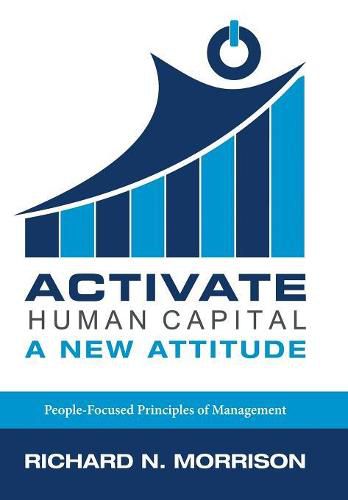Readings Newsletter
Become a Readings Member to make your shopping experience even easier.
Sign in or sign up for free!
You’re not far away from qualifying for FREE standard shipping within Australia
You’ve qualified for FREE standard shipping within Australia
The cart is loading…






This title is printed to order. This book may have been self-published. If so, we cannot guarantee the quality of the content. In the main most books will have gone through the editing process however some may not. We therefore suggest that you be aware of this before ordering this book. If in doubt check either the author or publisher’s details as we are unable to accept any returns unless they are faulty. Please contact us if you have any questions.
Over the last half century, college textbooks on management have taught the importance of valuing the human assets of a business, and they have also focused on how to effectively and appropriately manage those assets. And yet, we look around and rarely see it practiced.
In Activate Human Capital, author Richard N. Morrison outlines the eight People-Focused Principles of Management, and he explains them in terms of the values that motivate people to want to do the work given to them. And even more, he shows how these values will actually get employees to initiate their work because they will see how it contributes to the overall purpose of the business. Each principle-such as giving people a purpose, communicating widely, accommodating change, creating a culture of worth and hope, and rewarding performance, to name a few-is linked to a component of human fulfillment, and then through research, personal experience, and shared stories, Morrison discusses how to activate each principle and demonstrates what it should look like in the workplace.
Eight simple principles can help enhance all business relationships and improve efficiency, productivity, and profitability-if only managers are willing to change. People-focused management has been done, is being done, and will be done increasingly more often as more business leaders comprehend the potential in this empowering form of leadership. When employees feel valued, respected, encouraged, and fulfilled, they will work harder and be more invested in their work-and in the success of the business.
$9.00 standard shipping within Australia
FREE standard shipping within Australia for orders over $100.00
Express & International shipping calculated at checkout
This title is printed to order. This book may have been self-published. If so, we cannot guarantee the quality of the content. In the main most books will have gone through the editing process however some may not. We therefore suggest that you be aware of this before ordering this book. If in doubt check either the author or publisher’s details as we are unable to accept any returns unless they are faulty. Please contact us if you have any questions.
Over the last half century, college textbooks on management have taught the importance of valuing the human assets of a business, and they have also focused on how to effectively and appropriately manage those assets. And yet, we look around and rarely see it practiced.
In Activate Human Capital, author Richard N. Morrison outlines the eight People-Focused Principles of Management, and he explains them in terms of the values that motivate people to want to do the work given to them. And even more, he shows how these values will actually get employees to initiate their work because they will see how it contributes to the overall purpose of the business. Each principle-such as giving people a purpose, communicating widely, accommodating change, creating a culture of worth and hope, and rewarding performance, to name a few-is linked to a component of human fulfillment, and then through research, personal experience, and shared stories, Morrison discusses how to activate each principle and demonstrates what it should look like in the workplace.
Eight simple principles can help enhance all business relationships and improve efficiency, productivity, and profitability-if only managers are willing to change. People-focused management has been done, is being done, and will be done increasingly more often as more business leaders comprehend the potential in this empowering form of leadership. When employees feel valued, respected, encouraged, and fulfilled, they will work harder and be more invested in their work-and in the success of the business.